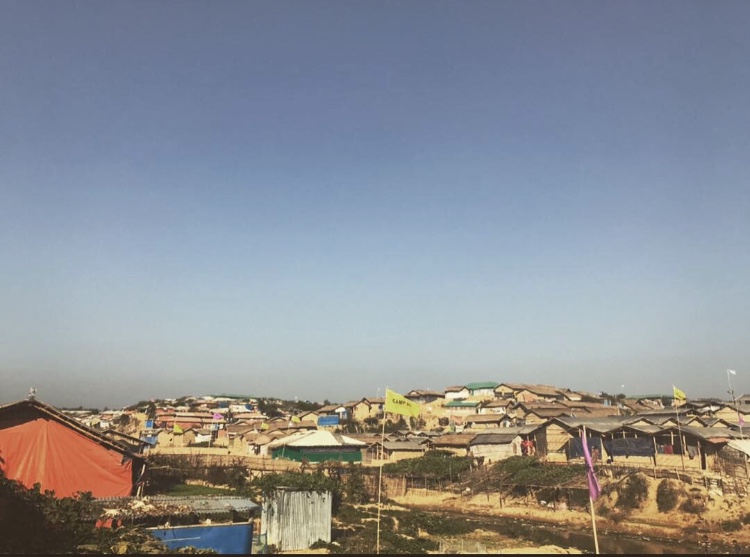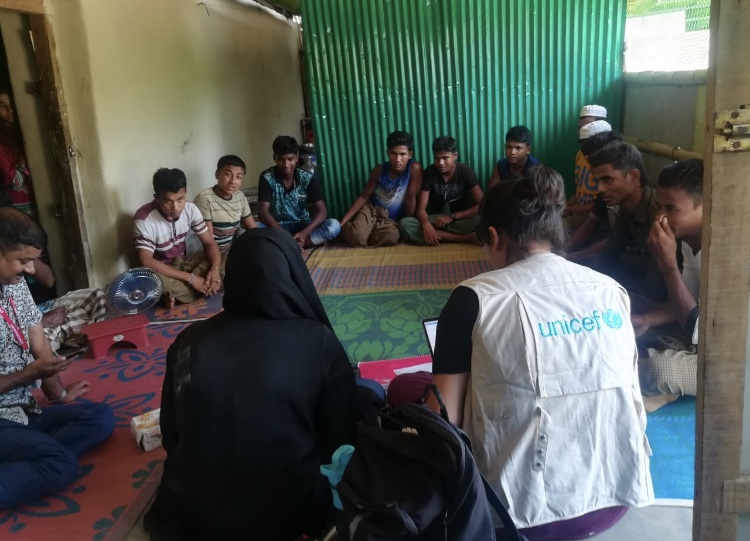A lot of my work in Cox’s bazar focused on understanding and finding ways to prevent Gender Based Violence. I read reports on this issue as well as had multiple conversations with men, women, boys and girls around violence against women. I found the level to which women had internalized violence to be shocking. Women considered it to be completely appropriate for their husbands and fathers to beat them in order to ‘discipline them’.
I also realized the power that language and words have on our understanding of society and our lives. The Rohingya language is not a written language but a spoken dialect. The translators I was working with found it hard to translate words like ‘sexual violence’ because these words seem to have not existed in the Rohingya language. This made me wonder the level of victimization of Rohingya women if words describing their plight hadn’t even been invented in their language.

My interactions with women who had internalized violence left me feeling extremely sad and disheartened. I wrote the following few lines to express what I was feeling:
Victim
I’ve always hated that word
Makes you feel so weak
So powerless
And its amazing, how when I say victim
I immediately picture a woman
A woman in a sari
Sad, violated and beaten
But today I realized another form of victimization
Met an even scarier form of a victim
Its she who doesn’t even know that she’s a victim
She’s internalized it all
Internalized patriarchy so much
That to her, a man can treat his wife anyway
Use her when he pleases
Kick her when he doesn’t
Words like marital rape, intimate partner violence do not exist in her vocabulary
If these are words that don’t even exist in her language
Words that were considered so insignificant, that they weren’t even created in her language
Then how can she ever understand their context, their meaning
She will tell you she was a child bride
Married off at the mere age of 13 - an internationally accepted form of GBV
But if you ask if she is a GBV survivor
She’ll say no
She’ll tell you that her husband beats her regularly
Assaults her physically and emotionally
But if you ask her if that is ok
She’ll say yes
She’ll say it is ‘ok as he is teaching her to be better’
If you ask her if she is a GBV survivor
She’ll say no
These are the worst forms of victims
Victims who’ve been so dehumanized
They don’t even realize that they’re victims anymore















